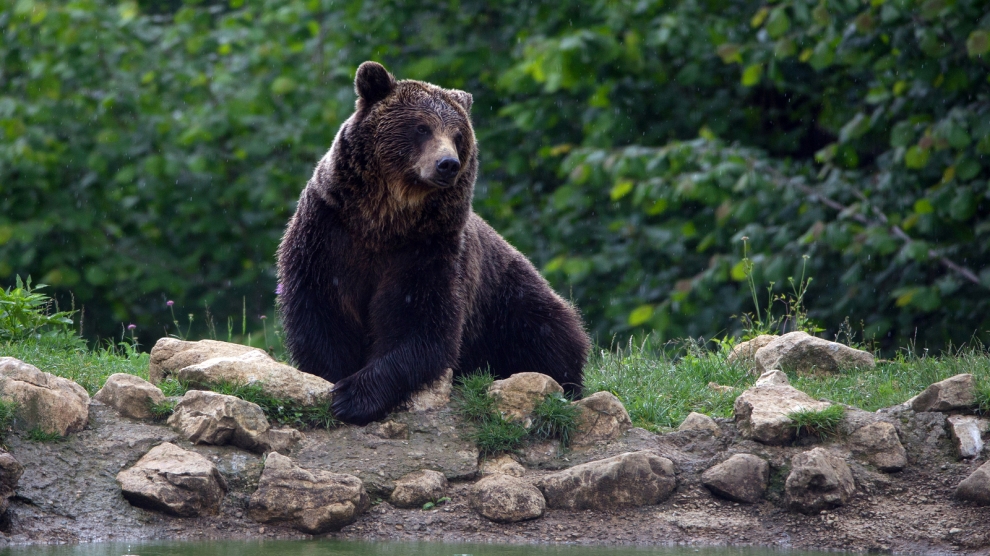The EU-funded LIFE EuroLargeCarnivores Project has launched a Europe-wide video campaign that features testimonials from people sharing the landscape with large carnivores. The videos demonstrate how people from all over the continent have found ways to coexist with bears, wolves, lynxes and wolverines.
According to official estimates, there are currently around 17,000 wolves, 17,000 bears, 9,000 lynx and 1,250 wolverines living in Europe (not including Russia).
Where people and large carnivores share the same landscapes, conflicts may arise.
“Coexistence between people and large carnivores is possible if people are open to learning from each other and try to adapt to the situation. The video testimonials demonstrate how people from all over the continent have found ways to coexist,” says Gavril Marius Berchi, Large Carnivore Conservation Project Manager, WWF-Romania.
People sharing their experiences in the videos range from farmers and sheep herders that have found ways to protect their livestock, to ecotourism operators and ordinary people from rural communities that accept and appreciate the presence of large carnivores.
“The situations and reactions of local communities living with large carnivores are very divergent across Europe. That’s why the videos do not preach one-size-fits-all answers. We hope that the videos can inspire people in different countries and regions to try to find the solutions that best fit their situations,” adds László Patkó, Large Carnivore Conservation Project Manager at WWF-Hungary.
The videos were filmed in Finland, Norway, Germany, France, Slovakia, Romania, Italy, Spain, Portugal, Poland, Austria and Hungary. All videos have been published on the LIFE EuroLargeCarnivores project’s YouTube channel. The videos will be shared widely on WWF Central and Eastern Europe social media channels.
WWF-Romania offers stories of two locals living in areas where wolves, bears and lynx never disappeared; Relu Nica a former ranger and Ioan Purcel a former hunter from the Apuseni Mountains. For both, large carnivores are an indispensable presence in the forest and a treasure that must be protected. In their opinion, there are solutions to reduce the risk of unwanted meetings, which some people have successfully applied and can share with others.
WWF-Slovakia highlights Ondrej Galko, a very charismatic former lynx hunter who tells how his life changed when the Iron Curtain fell. Today he helps to monitor lynx and shoots with camera traps. Tamara Tesakova is a farmer who talks about the large carnivores around her. She is not afraid, and she accepts both the positive and negative impacts of their presence on the landscape. Samuel Hríbik is a sheep herder and talks about a wolf attack on his sheep. Even so, his opinion is that wolves have an important role in nature. Ivana Resutikova is a hiking guide and sees the fascination and the fear that people have when thinking of large carnivores. She believes that they are a chance for tourism and people in the area can benefit from their presence.
WWF-Hungary filmed four short documentaries. Tamás Erdős is a hunter and the mayor of Répáshuta, a village in the Bükk Mountains where wolves live. He recalls his first encounter with a wolf during hunting. Ábrahám Szép is a kuvasz dog breeder, and volunteer founder and manager of the Kuvasz-őr! (Kuvasz-Guard) Large Carnivore Conservation Programme. Szép provides support for livestock keepers to protect their animals by giving Hungarian livestock kuvasz puppies to them for free. István Haluska is a farmer, hunter and forester who lives in a little village in Northern Hungary where wolves have resettled. He protects his animals with mobile electric fences and two Hungarian kuvasz guard dogs. László Horváth, a hunter lives the North Hungarian Mountains, perceives the presence of large carnivores in Northern Hungary as a sign of healthy biodiversity.
Protecting large carnivores and their habitats is a key element of WWF’s New Deal for Nature and People, and its goal to halt and reverse biodiversity and habitat loss by 2030. Within its framework we concentrate on protecting the natural habitats of large carnivores including their ecological corridors, avoiding unsustainable management practices, improving connectivity at the landscape level, reducing illegal killing and promoting sustainable use of natural resources.

